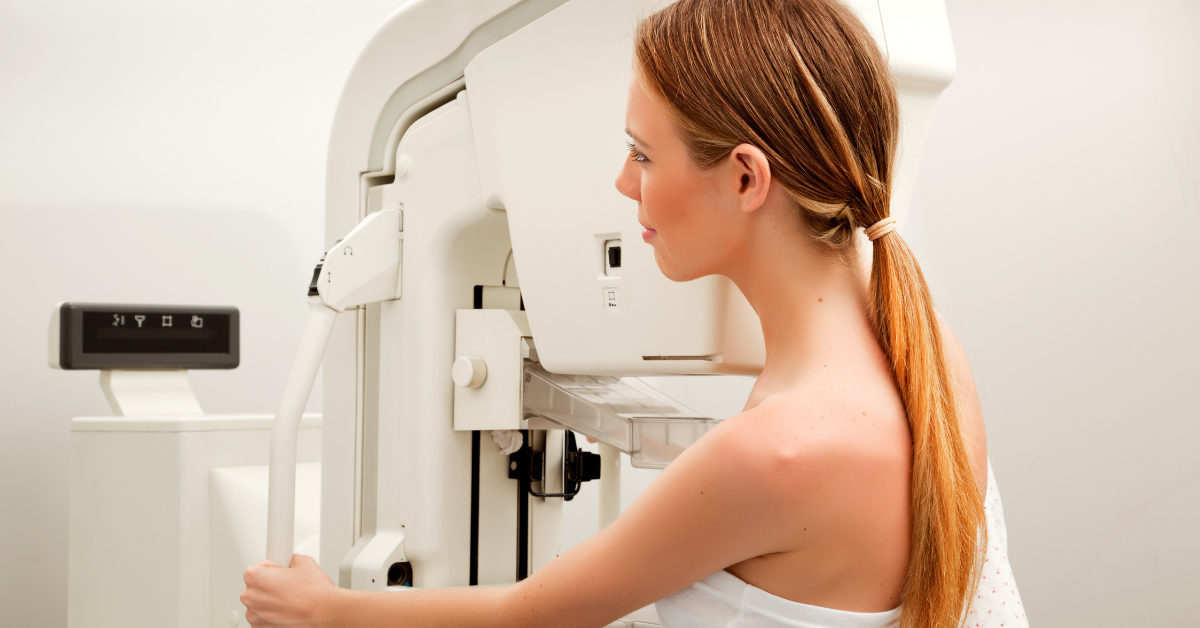
Preventive medical care such as mammograms, colonoscopies and annual exams are key to maintaining overall health. Early detection helps people work with their primary care physician to develop an action plan, with the goal of preventing chronic disease.
During the pandemic, people chose to forgo their annual exams and mammograms out of fear of illness. But as safety measures were put into place and a COVID-19 vaccine is available, the real danger became putting off the very appointments meant to keep you well.
The physicians at Tryon Medical Partners know how important it is to complete mammogram screenings and they want women to remember these five things before getting their mammogram.
1. Don’t Delay the Mammogram or COVID-19 Vaccination
“Patients shouldn’t hold off on scheduling their mammograms or getting their COVID-19 vaccine,” says Dr. Elizabeth Kirkland, an internal medicine specialist at Tryon Southpark. “A screening mammogram is one of the proven ways to lower the mortality rate from breast cancer and the vaccines are the best protection against developing serious illness, hospitalization and death from COVID-19.”
According to the American Cancer Society (ACS), early detection is the best detection. Around 10 percent of the women who have a mammogram screening will have an abnormal result and require additional images. Only 8-10% of these women will need a biopsy and about 80% of these biopsies will turn out not to be cancer.
When breast cancer is caught early and is in the localized stage (meaning there is no sign that the cancer has spread outside the breast), the five-year relative survival rate is 100 percent according to the National Breast Cancer Foundation.
2. Wait 4-6 Weeks After Vaccine to get a Mammogram
Some people who receive the COVID-19 vaccine may experience swollen lymph nodes under the arm in which the shot was given. Lymph nodes are part of the body’s germ-fighting immune system. The swelling in the lymph nodes is a sign that the body is responding to the vaccine and building up defenses against COVID-19.
When scheduling a mammogram screening it is recommended that women wait at least 4-6 weeks after receiving the Johnson & Johnson vaccine or the second dose of the Moderna or Pfizer mRNA vaccines.
3. Bring Your Vaccination Card to the Appointment
It is important to bring the COVID-19 vaccination card to your mammogram screening. This is just in case the imaging team needs to document any details regarding the date of vaccination, which arm and whether the vaccine was J&J, Moderna or Pfizer.
4. Be Confident in Returning to Doctor’s Offices
Although we equate doctor’s offices with sickness, patients should now feel confident and safe returning to the office. The cleaning and sanitizing of medical offices that were already routine have only been enhanced. Plus, specific COVID-19 safety requirements are tried and true with staff having implemented them for over a year.
Additionally, “People, including patients, have a more heightened awareness of COVID-safe recommendations when entering medical offices. They are more aware of the doorknobs they touch and remember to regularly wash their hands,” says Dr. Kirkland.
5. Follow Imaging Center’s Guidance
When having a mammogram screening, it is important to remember to follow the center’s guidelines which typically include:
- Avoid scheduling the mammogram when breasts are more likely to be tender such as during the menstrual cycle
- Ditch the deodorant, lotion and perfume
- Wear separates such as a top and pants
- Complete paperwork ahead of time to minimize your wait period
Remember, cancer doesn’t stop for a pandemic.
“It’s important to continue regular preventive care and mammogram screenings to help catch any potential issues as early as possible,” Dr. Kirkland says. “Patients need to time their appointments optimally and talk to their primary care doctor if they have concerns.”
If anyone has been putting off preventive care because of coronavirus, it’s time to get back on track. Schedule an appointment with the physicians at Tryon Medical Partners today and make a plan to get caught up on your preventive care.

